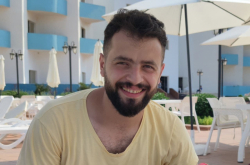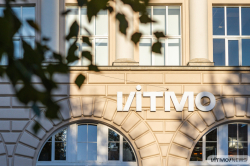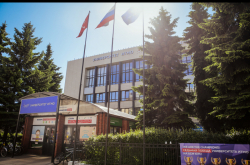During the Second World War, the city (then called Leningrad) was besieged for almost three years with the only connection to the outside world across the frozen lake. Over a million lives were lost, and no family left untouched. During the war, people fought together to survive, and after - to rebuild their city and their lives. Through mutual support and cooperation, they were able to achieve the seemingly unattainable standard of remaining human in what were terribly inhumane conditions.
Similarly, this week’s shocking incident united the city and served as an example that with each crisis comes an unexpected victory. St. Petersburg metro is the city’s vascular system that transports over two million people every day. It even stays open on New Year’s. People love its convenience and reliability, not to mention sheer beauty, and consider it safe and secure.
The explosion in one of the carriages on April 3rd claimed the lives of at least 14 people, wounding more than 40, and shattering that long-held feeling of safety. A second explosive device was found in the largest and most crowded station and successfully defused. As a precaution, special forces shut down the entire metro system for a day and checked every station for additional bombs.
The city was in a state of shock. It wasn’t immediately known whether there were other explosive devices, whether other stations were targeted, and in general, the scope of the disaster unfolding. We still don’t know about all the individual acts of heroism as ordinary people helped pull the injured off the carriages and rescued those knocked down by a panicked crowd.
Perhaps the most surprising and extraordinary response came when the entire metro system was shut down, leaving hundreds of thousands of people stranded all over the city. Public transport and taxis were free for a day but they were no match for the demand. Soon offers began to pour in on Yandex Navigator (Russia’s equivalent to Google Maps) of free rides to anyone who needed them. People would post where they were driving to and how many they could take along. On VK, (Russia’s version of Facebook) there were thousands of comments under #домой (#home) hashtag within just a few hours. Soon a website along with a Google spreadsheet as well as a group on the popular "Telegram" messaging service, were set up to help passengers and drivers post about connecting for sharing rides.
Many just put a sheet of paper with availability on their windshield. Essentially everyone who had a car turned into a volunteer. As the afternoon turned into evening, expressions of gratitude flooded the Navigator. One read: "Thank you to the man in the yellow car for the ride home".
Businesses pitched in tool. Gas stations offered free gas. Restaurants and cafes offered hot drinks and snacks. A restaurant chain Dve Palochki fed volunteers an entire free dinner. Helping to deal with stress, the “cat cafe” Republic of Cats invited everyone for free tea and lots of cat hugs.
Strangers offered strangers a place to stay. Strangers offered strangers cellphones, chocolate bars, and kind words. “If you can’t ‘make it home tonight, come over. It’s better together.” And then a phone number and address...
Today, candles are burning amid the heaps of flowers by the metro station where the tragedy happened. People stop and say a prayer.
Citizens of St. Petersburg, like many Russians, may not be constantly wearing a smile, but the events this week shows that one’s external demeanor is not reflective of the generosity of spirit inherent in the human soul. The tragedy helped people see the nobility in others, created a sense of community, and reminded us that we are surrounded by multitudes of people willing and able to help in times of need.
While there are some who intend to arouse fear and suspicion among us, let us instead respond with the qualities that united our beloved city this week: creativity, trust, unconditional love, and kindness.
#мывместе (#wearetogether)
English Editorial Office



